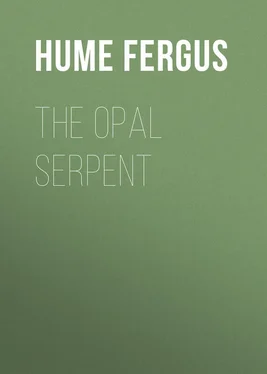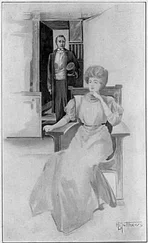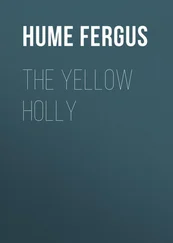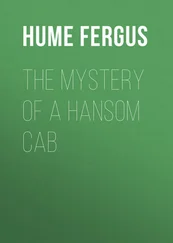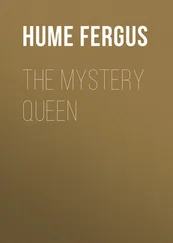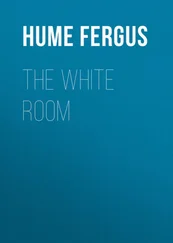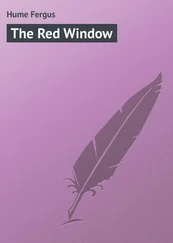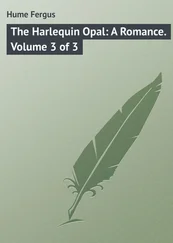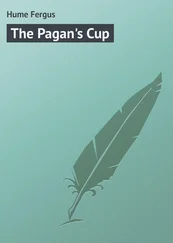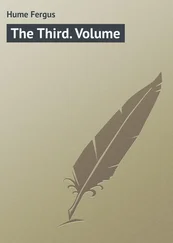Fergus Hume - The Opal Serpent
Здесь есть возможность читать онлайн «Fergus Hume - The Opal Serpent» — ознакомительный отрывок электронной книги совершенно бесплатно, а после прочтения отрывка купить полную версию. В некоторых случаях можно слушать аудио, скачать через торрент в формате fb2 и присутствует краткое содержание. Жанр: Классический детектив, foreign_detective, foreign_prose, foreign_language, на английском языке. Описание произведения, (предисловие) а так же отзывы посетителей доступны на портале библиотеки ЛибКат.
- Название:The Opal Serpent
- Автор:
- Жанр:
- Год:неизвестен
- ISBN:нет данных
- Рейтинг книги:3 / 5. Голосов: 1
-
Избранное:Добавить в избранное
- Отзывы:
-
Ваша оценка:
- 60
- 1
- 2
- 3
- 4
- 5
The Opal Serpent: краткое содержание, описание и аннотация
Предлагаем к чтению аннотацию, описание, краткое содержание или предисловие (зависит от того, что написал сам автор книги «The Opal Serpent»). Если вы не нашли необходимую информацию о книге — напишите в комментариях, мы постараемся отыскать её.
The Opal Serpent — читать онлайн ознакомительный отрывок
Ниже представлен текст книги, разбитый по страницам. Система сохранения места последней прочитанной страницы, позволяет с удобством читать онлайн бесплатно книгу «The Opal Serpent», без необходимости каждый раз заново искать на чём Вы остановились. Поставьте закладку, и сможете в любой момент перейти на страницу, на которой закончили чтение.
Интервал:
Закладка:
"She hasn't run away yet, Sir Galahad," laughed Grexon. "By Jove, you are an innocent!"
"If that means respecting the institution of marriage and adoring women as angels I hope I'll remain an innocent."
"Oh, women are angels, of course," said Hay as they walked down Gwynne Street; "it's a stock phrase in love-making. But there are angels of two sorts. Dulcinea is – "
"Here we are," interrupted Paul, quickly. Somehow it irritated him to hear this hardened sinner speak of Sylvia, and he began to think that Grexon Hay had deteriorated. Not that he was considered to be particularly good at Torrington school. In fact, Paul remembered that he had been thoroughly disliked. However, he had no time to go into the matter, for at this moment Aaron appeared at the door of the shop. He stepped out on to the pavement as Paul approached. "Come in," he said, "I want to see you – privately," he added, casting a frightened look at Hay.
"In that case I'll leave you," said Grexon, disengaging his arm from Paul. "Dulcinea must wait for another occasion. Go in and do your business. I'll wait without."
Paul thanked his friend by a look and went into the shop with the old man. "That brooch," said Aaron, in a timid whisper, "have you got it? Give it to me – quick – quick."
There was no one in the shop as Bart had apparently gone out on an errand. The door leading to the stairs, down which Sylvia had so often descended, was closed, and no one was about to overhear their conversation. "I have the brooch," said Paul, "but – "
"Give it to me – give it," panted Aaron. "I'll buy it – at a large price. Ask what you want."
"Why are you so eager to get it?" demanded Beecot, astonished.
"That's my business," said Norman, in a suddenly imperious manner. "I want it. The stones take my fancy," he ended weakly.
"Was that why you fainted?" asked Paul, suspiciously.
"No." The man grew white and leaned against the counter, breathing heavily. "Where did you get the brooch?" he asked, trying to keep himself calm, but with a visible effort.
"I got it from my mother, and she received it from my father – "
"Beecot – Beecot," said the old man, fingering his lips, much agitated. "I know no one of that name save yourself, and you are not a spy – a scoundrel – a – a – " He caught the eyes of Paul fixed on him in amazement, and suddenly changed his tone. "Excuse me, but the brooch reminds me of trouble."
"You have seen it before?"
"Yes – that is no – don't ask me." He clutched at his throat as though he felt choked. "I can't talk of it. I daren't. How did your father get it?"
More and more astonished, Paul explained. Aaron listened with his one eye very bright, and made uneasy motions with his lean hands as the young man spoke. When Beecot ended he bit his nails. "Yes, yes," he murmured to himself, "it would be asked for back. But it sha'n't go back. I want it. Sell it to me, Mr. Beecot."
"I'm sorry I can't," replied Paul, good-naturedly. "But my mother wired that it was to be returned. My father has discovered that she sent it to me and is not pleased."
"Did you tell your mother you had shown it to me?"
"No. There was no need."
"God bless you!" breathed the man, pulling out a crimson handkerchief. "Of course there was no need," he tittered nervously. "It doesn't do to talk of pawning things – not respectable, eh – eh." He wiped his face and passed his tongue over his white lips. "Well, you won't sell it to me?"
"I can't. But I'll ask my mother if she will."
"No, no! Don't do that – say nothing – say nothing. I don't want the brooch. I never saw the brooch – what brooch – pooh – pooh, don't talk to me of the brooch," and so he babbled on.
"Mr. Norman," said Beecot, gravely, "what is the story connected with the brooch?"
Aaron flung up his hands and backed towards the counter. "No, no. Don't ask me. What do you mean? I know no story of a brooch – what brooch – I never saw one – I never – ah" – he broke off in relief as two pale-faced, spectacled girls entered the shop – "customers. What is it, ladies? How can I serve you?" And he bustled away behind the counter, giving all his attention to the customers, yet not without a sidelong look in the direction of the perplexed Paul.
That young gentleman, finding it impossible to get further speech with Aaron, and suspecting from his manner that all was not right, left the shop. He determined to take the brooch to Wargrove himself, and to ask his mother about it. Then he could learn why she wanted it back – if not from her, then from his father. This knowledge might explain the mystery.
"Did you sell the brooch?" asked Grexon as they walked up Gwynne Street.
"No. I have to send it back to my mother, and – "
"Hold on!" cried Hay, stumbling. "Orange-peel – ah – "
His stumble knocked Paul into the middle of the road. A motor car was coming down swiftly. Before Hay could realize what had taken place Paul was under the wheels of the machine.
CHAPTER V
TROUBLE
"Oh, Debby," wept Sylvia, "he will die – he will die."
"Not he, my precious pet," said the handmaiden, fondling the girl's soft hands within her own hard ones. "Them sort of young men have as many lives as tom cats. Bless you, my flower, he'll be up and ready, waiting at the altar, before the fashions change – and that's quick enough," added Deborah, rubbing her snub nose. "For they're allays an-altering and a-turning and a-changing of 'em."
The two were in the sitting-room over the bookshop. It was a low-ceilinged apartment, long and narrow, with windows back and front, as it extended the whole depth of the house. The back windows looked out on the dingy little yard, but these Norman had filled in with stained glass of a dark color, so that no one could see clearly out of them. Why he had done so was a mystery to Sylvia, though Deborah suspected the old man did not want anyone to see the many people who came to the back steps after seven. From the front windows could be seen the street and the opposite houses, and on the sills of the windows Sylvia cultivated a few cheap flowers, which were her delight. The room was furnished with all manner of odds and ends, flotsam and jetsam of innumerable sales attended by Aaron. There were Japanese screens, Empire sofas, mahogany chairs, Persian praying mats, Louis Quatorz tables, Arabic tiles, Worcester china, an antique piano that might have come out of the ark, and many other things of epochs which had passed away. Sylvia herself bloomed like a fair flower amidst this wreckage of former times.
But the flower drooped at this moment and seemed in danger of dying for lack of sunshine. That, indeed, had been taken away by the removal of the young lover. Bart, who had witnessed the accident, returned hastily to tell Sylvia, and so great had the shock of the dreadful news been, that she had fainted, whereupon the foolish shopman had been severely dealt with by Deborah. When Sylvia recovered, however, she insisted upon seeing Bart again, and then learned that Paul had been taken to Charing Cross Hospital.
"They drawed him from under the wheels, miss, as white as a vellum binding as ain't bin used. That gent as he was a-walking arm-in-arm with, slipped and knocked Mr. Beecot spinning under the steam engine." So did Bart describe the latest triumph of civilisation. "He was that sorry, in a cold-blooded way, as I never saw. He helped to git Mr. Beecot into a cab and druve off. Then I come to tell you."
"And a nice way you've told it," grunted Deborah, driving him to the door. "Get back to the shop, you threadpaper of a man. My husband shall never be such a fool. The engagement's off."
"Oh, Debby!" whimpered Bart, who, strange to say, was fondly attached to the stout servant. But that may have been habit.
Читать дальшеИнтервал:
Закладка:
Похожие книги на «The Opal Serpent»
Представляем Вашему вниманию похожие книги на «The Opal Serpent» списком для выбора. Мы отобрали схожую по названию и смыслу литературу в надежде предоставить читателям больше вариантов отыскать новые, интересные, ещё непрочитанные произведения.
Обсуждение, отзывы о книге «The Opal Serpent» и просто собственные мнения читателей. Оставьте ваши комментарии, напишите, что Вы думаете о произведении, его смысле или главных героях. Укажите что конкретно понравилось, а что нет, и почему Вы так считаете.
